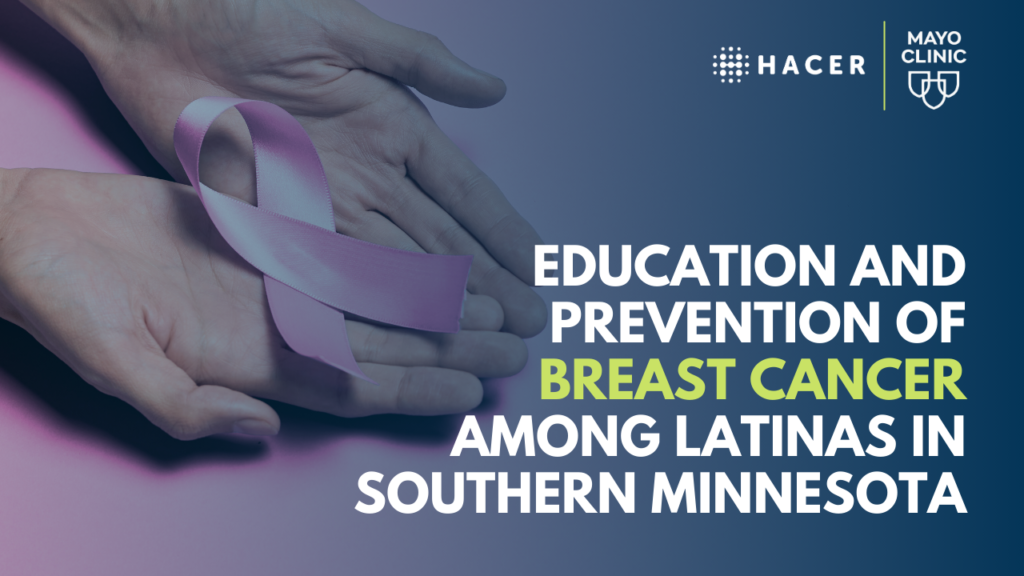
Project Background
Prioritizing the health of all Minnesotans is essential to ensure that everyone has the opportunity to live a full and healthy life. In Minnesota, as in the rest of the country, breast cancer is the leading cause of cancer death among Latina women. One reason for this may be that Latina women are often diagnosed at a later stage of the disease. Additionally, breast cancer ranks first among new cancer cases in Latina women, who also have one of the lowest five-year survival rates.
In response to this, Hispanic Advocacy and Community Empowerment through Research (HACER), in collaboration with the Mayo Clinic, launched a project with the following goals in mind:
- Provide culturally tailored educational workshops and free breast cancer screenings to Latina women in rural areas, specifically in the cities of Mankato, Madelia, and St. James, Minnesota.
- Prevent late-stage breast cancer diagnoses in these women through early screenings.
- Reduce breast cancer incidence and mortality rates among Latina women living in Mankato, Madelia, and St. James.
Methods
Community Engagement through Interviews to Inform Educational Workshops
In the fall of 2023, HACER conducted 19 interviews and one workshop with Latina women from Mankato, Madelia, and St. James. Participants were recruited through in-person outreach and social media efforts, with 19 out of 100 registered women completing interviews. Eligibility was determined via a registration form.
These interviews highlighted systemic, economic, psychosocial, and cultural barriers that impacted breast cancer screening among Latina women during and after the pandemic. Using the insights gathered, HACER developed educational workshops tailored to the unique cultural and religious perspectives of Latina women regarding their bodies.
Organizations such as the Breast Cancer Education Association, Minnesota’s SAGE program, Hope Chest for Breast Cancer Foundation, Angel Foundation, and Susan G. Komen contributed educational resources for the workshops. Participants completed pre- and post-surveys to measure the knowledge gained. A 5-point Likert scale was also used to evaluate the relevance of the workshop’s content and activities to their personal experiences and cultural backgrounds.
